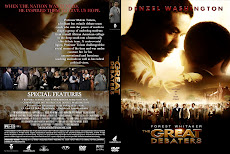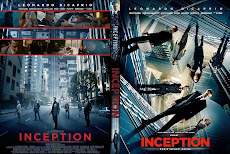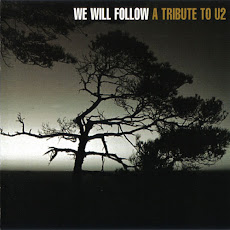Happy Green
 Thanks to Al Gore and other environmentalists the concern of global warming is rapidly growing throughout the world, mostly in the West. In America, for example, people talk this issue every day. At bookstores people are reading books and magazines giving them instructions how to be green and be part of a global movement to save the earth.
As a response to public awareness, industries are helping their customers to become greener and greener. Supermarkets are stocking their shelves with organic and eco-friendly products. Whole Foods Market, the world’s leading retailer of natural and organic food, is growing fast by giving its customers a promise that the food they buy will help saving the earth.
Despite the fact that U.S. government is still unwilling to sign the Kyoto Protocol, every day new organic products are filling supermarkets’ stock lists in America. Now they have organic apple, organic bread, organic burgers, organic lipstick, and a bunch of other organic products.
Someone once told me that organic chicken tastes better than the regular chicken. I got confused and complained, “How could that be?” She explained that an organic chicken is fed only with organic grains, never given any antibiotics and hormones, and raised in a stress-free environment. Now I know that a happy chicken tastes better. I later added, “We have that kind of chicken in our country too, it’s called ayam kampung.”
On my first visit to Market a cashier asked me when I was preparing to swipe my card, “Paper or plastic?” Looking like a fool I responded bluntly, “I don’t understand. I don’t want to buy paper or plastic, that will be all.”
Later I found out that she was asking me whether I wanted to have a plastic bag or a paper bag. The paper bag is considered eco-friendly since it’s recyclable. But, Whole Foods Market is doing further now by not asking that kind of question again. They have sacked all their plastic bags and only provide their consumers with paper and reusable bags. h.
The reason Foods Market implements this strategy is because the company claims it’s what their consumers demand and more importantly is the fact that a disposable plastic bag takes more than a thousand years to break down in a landfill.
A thousand years for a plastic bag! That’s huge.
Thanks to Al Gore and other environmentalists the concern of global warming is rapidly growing throughout the world, mostly in the West. In America, for example, people talk this issue every day. At bookstores people are reading books and magazines giving them instructions how to be green and be part of a global movement to save the earth.
As a response to public awareness, industries are helping their customers to become greener and greener. Supermarkets are stocking their shelves with organic and eco-friendly products. Whole Foods Market, the world’s leading retailer of natural and organic food, is growing fast by giving its customers a promise that the food they buy will help saving the earth.
Despite the fact that U.S. government is still unwilling to sign the Kyoto Protocol, every day new organic products are filling supermarkets’ stock lists in America. Now they have organic apple, organic bread, organic burgers, organic lipstick, and a bunch of other organic products.
Someone once told me that organic chicken tastes better than the regular chicken. I got confused and complained, “How could that be?” She explained that an organic chicken is fed only with organic grains, never given any antibiotics and hormones, and raised in a stress-free environment. Now I know that a happy chicken tastes better. I later added, “We have that kind of chicken in our country too, it’s called ayam kampung.”
On my first visit to Market a cashier asked me when I was preparing to swipe my card, “Paper or plastic?” Looking like a fool I responded bluntly, “I don’t understand. I don’t want to buy paper or plastic, that will be all.”
Later I found out that she was asking me whether I wanted to have a plastic bag or a paper bag. The paper bag is considered eco-friendly since it’s recyclable. But, Whole Foods Market is doing further now by not asking that kind of question again. They have sacked all their plastic bags and only provide their consumers with paper and reusable bags. h.
The reason Foods Market implements this strategy is because the company claims it’s what their consumers demand and more importantly is the fact that a disposable plastic bag takes more than a thousand years to break down in a landfill.
A thousand years for a plastic bag! That’s huge.
 But now, what does it mean that we should be green? Is dumping plastic bags enough to stop the global warming? And does buying organic food and other eco-friendly products will actually help this earth? Or is it just another trend like other frenzies that will always come and go?
Are we really sincere in helping this earth when we buy an organic milk or locally planted fruits? Whatever the reason is, it is important to understand that the issue of global warming is something real and needs to be taken seriously by every living person in this world, including Indonesians.
The discussion of global warming is not merely about how organic our food is or how much we can disassociate ourselves from plastic bags but also how we can solve the energy crisis and other issues too.
I know it’s not easy for most Indonesians to be concerned in this matter since they are struggling hard just to find food to eat. Indonesians who live in small cities and villages, for example, know exactly how the environment is part of their lives. But when they have to choose between saving the earth or having no food to eat, the result is something that all environmentalists don’t wish to dream about.
It is sad to know that according to Time’s Michael Grunwald in his recent article “The Clean Energy Scam” Indonesia is the third world’s top carbon emitter due to its deforestation. The irony is, most trees are cut down because investors backed by politicians and local governments are pouring their money into the palm oil industry in the name of biofuels.
And while many politicians believe that biofuels might be the answer for the energy crisis, not many people know that biofuels are actually making things worse.
Saving the earth is not an easy job. Relying this issue entirely on our central government is certainly not enough. Every one of us has to be creative and sincere. Making sure that your own environment is clean is good, but it’s not enough. The earth wants you to spread the news that saving the earth is not just something cool but it’s a must.
It’s time for us to be green.
But now, what does it mean that we should be green? Is dumping plastic bags enough to stop the global warming? And does buying organic food and other eco-friendly products will actually help this earth? Or is it just another trend like other frenzies that will always come and go?
Are we really sincere in helping this earth when we buy an organic milk or locally planted fruits? Whatever the reason is, it is important to understand that the issue of global warming is something real and needs to be taken seriously by every living person in this world, including Indonesians.
The discussion of global warming is not merely about how organic our food is or how much we can disassociate ourselves from plastic bags but also how we can solve the energy crisis and other issues too.
I know it’s not easy for most Indonesians to be concerned in this matter since they are struggling hard just to find food to eat. Indonesians who live in small cities and villages, for example, know exactly how the environment is part of their lives. But when they have to choose between saving the earth or having no food to eat, the result is something that all environmentalists don’t wish to dream about.
It is sad to know that according to Time’s Michael Grunwald in his recent article “The Clean Energy Scam” Indonesia is the third world’s top carbon emitter due to its deforestation. The irony is, most trees are cut down because investors backed by politicians and local governments are pouring their money into the palm oil industry in the name of biofuels.
And while many politicians believe that biofuels might be the answer for the energy crisis, not many people know that biofuels are actually making things worse.
Saving the earth is not an easy job. Relying this issue entirely on our central government is certainly not enough. Every one of us has to be creative and sincere. Making sure that your own environment is clean is good, but it’s not enough. The earth wants you to spread the news that saving the earth is not just something cool but it’s a must.
It’s time for us to be green. Possibly related posts: (automatically generated)
Union of Whole Foods and Wild Oats Is Put in Doubt - NYTimes.com
In Lean Times, Whole Foods Tries for a Fresh Image - NYTimes.com
Possibly related posts: (automatically generated)
Union of Whole Foods and Wild Oats Is Put in Doubt - NYTimes.com
In Lean Times, Whole Foods Tries for a Fresh Image - NYTimes.com Tasa Barley, http://guebukanmonyet.com




























